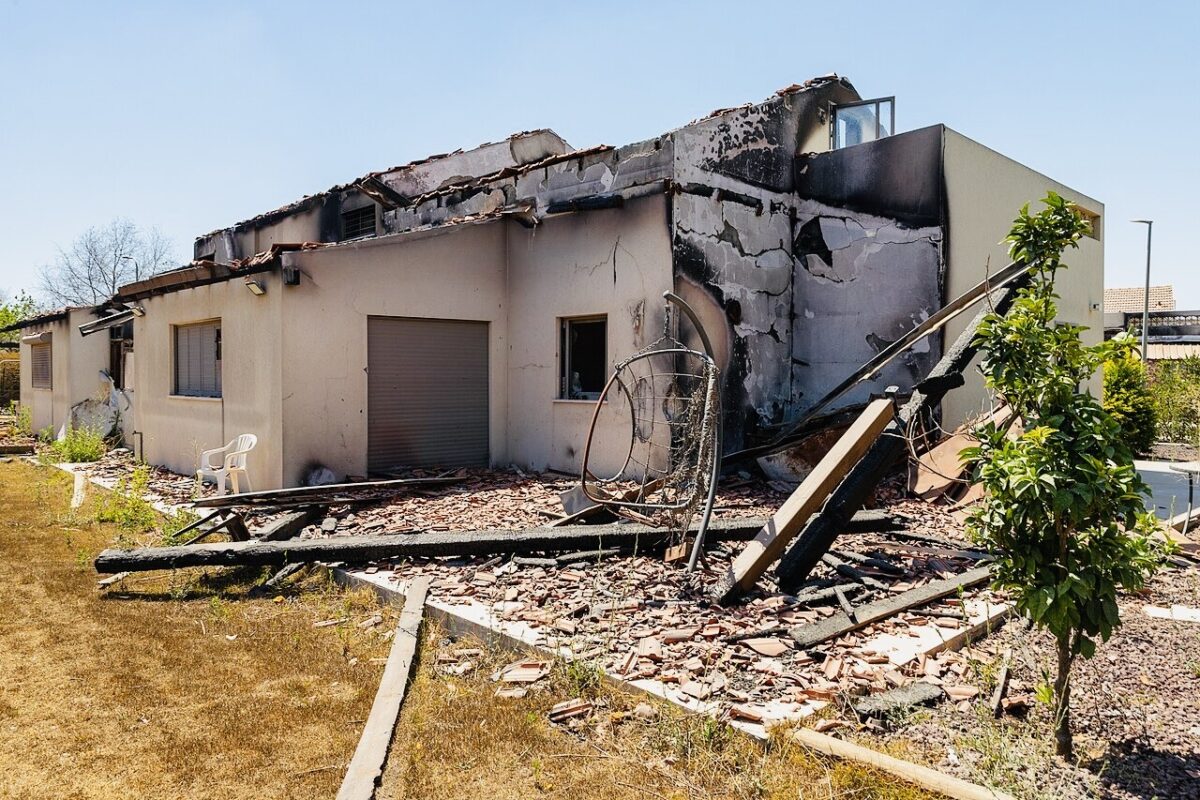October 7, a day of infamy, has been seared into the hearts and minds of Israeli and Diaspora Jews, a catastrophe never to be forgotten.
If October 6 seemed like a normal day in Israel, October 7 was radically and tragically different. Preceded by a massive rocket barrage, it was soaked by the blood of roughly 1,200 civilians and soldiers who were brutally murdered, injured and sexually assaulted by a band of some 3,000 Hamas and Islamic Jihad terrorists who dragged 251 Israeli and foreign hostages back to the Gaza Strip.

Kibbutzim and towns close to Gaza, such as Be’eri, Kfar Aza, Sderot and Ofakim, were invaded, as were nearby army bases and the Nova music festival.
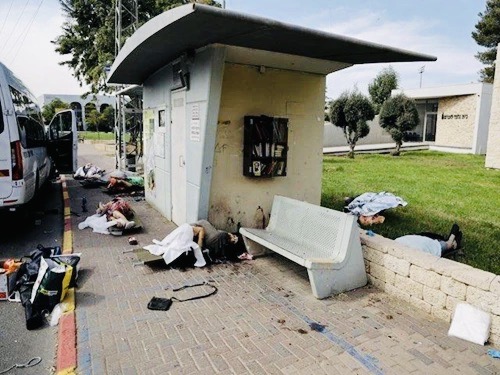
It seemed like a surprise attack, but Israel expected it, having been aware that Hamas was planning something big along these lines. Israeli officials, however, believed that Hamas lacked the expertise to carry it out and were confident that terrorists would be unable to penetrate the heavily-fortified border.
Nonetheless, October 7 was the most serious Israeli military and intelligence failure since the Yom Kippur War and certainly the worst atrocity enveloping Jews since the Holocaust.
While it shocked, appalled, enraged and traumatized Israelis, it elicited awe and admiration among most Palestinians and Arabs, who hailed it as an heroic and unprecedented act of resistance. What Hamas achieved in just a matter of hours was an objective that had eluded conventional Arab armies since the declaration of Israeli statehood in 1948.
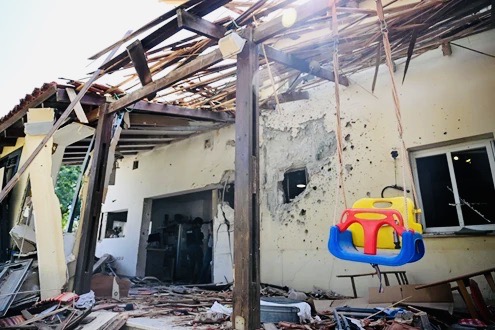
Israel reacted swiftly, killing 1,000 terrorists who had not escaped into Gaza and launching a ferocious air campaign targeting Hamas military infrastructure. Three weeks later, Israel initiated its massive ground offensive into Gaza. Since then, a total of 728 soldiers and security agents have been killed in battle.
As the first anniversary of October 7 approached, Israel still had not rescued the remaining hostages, some of whom are presumed dead. This unresolved issue has created anguish, discord and fissures in Israel and resulted in mass demonstrations that have polarized the country.
Hezbollah, Hamas’ Lebanese ally and a member of Iran’s anti-Israel Axis of Resistance alliance, entered the war on October 8 in a show of support and solidarity with the Palestinians.
Hassan Nasrallah, Hezbollah’s secretary-general and Iran’s leading proxy, offered to stop his attacks if Israel agreed to a truce and withdrew from Gaza. Bent on achieving total victory in Gaza by smashing Hamas, Israel dismissed his proposal and the war went on, preventing some 60,000 displaced Israelis from returning to their homes near the Lebanese border.
At first, the cross-border skirmishes were confined to southern Lebanon and northern Israel. Eventually, the daily clashes degenerated into a full-blown war during which Israel struck Hezbollah bases across Lebanon, killed a succession of its field commanders, assassinated Nasrallah, and invaded Lebanon for the third time in 46 years.
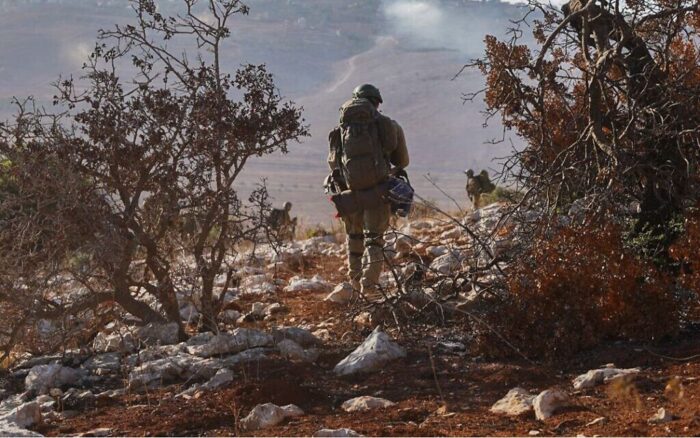
Israel’s incursion into Lebanon has already claimed the lives of about a dozen soldiers and hundreds of Hezbollah fighters. Even as the Israeli Air Force bombs Hezbollah targets throughout Lebanon, particularly Beirut, Hezbollah has been firing hundreds of rockets at Israel, hitting cities like Haifa and Tiberias.
The war that started in Gaza has spread well beyond its borders. Much to the satisfaction of Hamas’ leader, Yahaya Sinwar, it has metastasized into a regional war that may yet involve the United States, Israel’s chief ally, and perhaps reshape the Middle East.
Promising to avenge Israel’s purported assassination of Hamas political leader Ismail Haniyeh in Tehran this past July, Iran — Israel’s strongest enemy and Hamas’ patron — attacked Israel directly on October 1 for the second time since April.
Iran fired a volley of ballistic missiles at Israel, causing more damage than the previous time. Israel is bound to retaliate in at least reciprocal fashion.
Israel has jettisoned its heretofore policy of defensive deterrence and containment of Iran and shifted to an offensive strategy that will likely goad Iran into mounting reprisal attacks. This may well spark an all-out war between Israel and Iran.
Apart from Iran, Hezbollah and Hamas, Israel has been attacked by two other members of the Axis of Resistance.
The Houthis in Yemen have launched more than 200 missiles and drones at Israel, killing a man in Tel Aviv and injuring two dock workers in Eilat. By way of response, Israel has twice bombed the port of Hodeidah, inflicting serious destruction.
A coalition of Islamists in Iraq have attacked Israel as well, firing barrages of missiles and drones. On October 4, an Iraqi drone crashed into an army base on the Golan Heights, killing two soldiers.
Israel has been drawn into an existential war on multiple fronts that could be very costly, even in the short term. But this could be a strategic opportunity for Israel to return to its old doctrine of preemption, which could be useful in deterring its enemies, especially in Gaza and Lebanon, from building up their forces adjacent Israel’s borders.
Given the regional threats that it faces on a regular basis, Israel appears to have decided to expand its army. As the commander of Israeli forces, General Herzi Halevi, wrote on October 6, “October 7 is not only a day of remembrance, but also a day calling for a deep soul-searching. To recognize failures and learn from them, while examining the challenges that have been and those that are yet to come. We are changing and adapting the defence conception on all borders … The Israel Defence Forces must be larger …”

These are among the lessons that Israel has learned since last October, which marked a turning point in the annals of the region.
Israeli Prime Minister Benjamin Netanyahu, who has yet to accept personal responsibility for October 7, thought he could sideline the Palestinian Authority and contain and appease Hamas with cash infusions from Qatar to the tune of $1 billion.
It seemed like a reasonable idea, but it failed miserably. Hamas, which rejects Israel’s very existence, aspires to create an Islamic state within the borders of historic Palestine, and rejects a two-state solution, broke one ceasefire after another from 2008 onward. Biding its time, Hamas waited for a ripe opportunity to attack Israel in league with the Axis of Resistance.
Hamas was emboldened by one factor and driven by two imperatives.
Hamas’ leadership calculated that the deep divisions triggered by the Israeli government’s scheme to overhaul the judiciary had weakened Israel to a grave extent, and now was the moment to strike. It was a foolish miscalculation, underscoring Hamas’ shallow understanding of Israeli society.
From a broader perspective, Hamas sought to place the Palestinian cause back on the front burner following the 2020 Abraham Accords, which shunted it aside and enabled Israel to sign historic normalization agreements with the United Arab Emirates, Bahrain, Morocco and Sudan in only a matter of months.
Hamas, too, hoped to derail a U.S. plan to normalize Israel’s relations with Saudi Arabia, the seat of Islam.
On both counts, Hamas has succeeded.
The Palestinian issue is on the international community’s agenda once again. Even Israeli allies like the United States are insistently calling for a two-state solution, to which Netanyahu’s right-wing government is adamantly opposed.
Saudi Arabia has made it crystal clear that a rapprochement with Israel is out of the question unless it agrees to Palestinian statehood. In light of Netanyahu’s hardline views and the complexion of his coalition government, this scenario has been removed from the equation.
In other respects, Hamas has fared badly, having been seriously degraded by Israel on the battlefield. Over the course of 12 months, Israel has battered Hamas relentlessly, killing about 17,000 of its approximately 30,000 fighters in 24 battalions, hunting down virtually all its leaders and commanders, destroying its command and control apparatus and many of its tunnels, and all but obliterating its weapons caches and rocket capabilities. Israel has thereby reduced Hamas into a guerrilla army that no longer is capable of mounting an October 7-style assault.
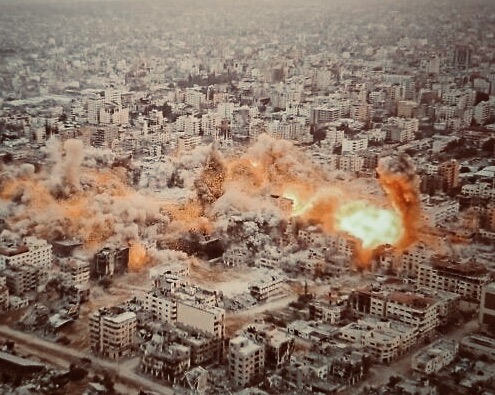
Yet, as far as Hamas is concerned, it is winning the war. “Hamas has the upper hand,” Khaled Marshal, one of its most senior officials and the object of an Israeli assassination attempt in 1997, boasted recently. “We have remained steadfast,” he added, equating survival with victory.
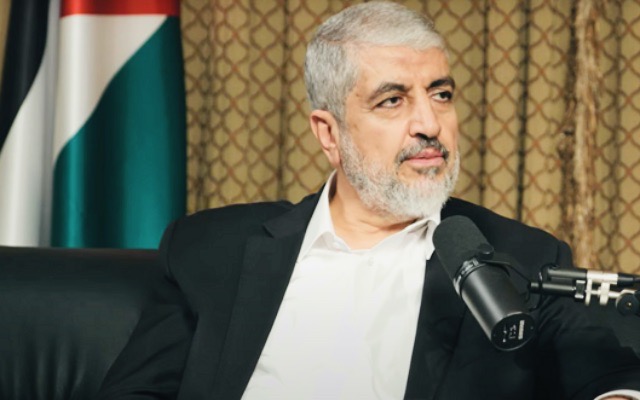
In line with his claim, Hamas has remained resilient and has constantly regrouped, forcing the Israeli army to conduct clearing operations in places from which it withdrew, such as Gaza City and Khan Younis.
On October 7, in a display of utter defiance, Hamas fired rockets that landed in Tel Aviv, the suburb of Holon and the nearby village of Kfar Chabad, the headquarters of the Lubavitcher movement.
On October 1 and 2, Israeli aircraft struck Hamas command and control facilities in schools and mosques in central Gaza. Yesterday, Israel encircled the Jabaliya refugee camp amid efforts by Hamas to reestablish itself in northern Gaza.
On September 29, the Israeli air force bombed a command and control site in northern Gaza, while the Al Aqsa Martyrs’ Brigade and Islamic Jihad conducted four attacks against Israel in the Netzarim Corridor. On September 25, Israel killed 40 Hamas operatives throughout Gaza while locating rocket launchers. On September 18, four Israeli troops, including the first female soldier, were killed in southern Gaza, bringing the army’s death toll to 340 since last October. A day later, Israeli troops clashed with Palestinian gunmen in the Tel al-Hawa neighborhood, while Hamas fired rocket-propelled mortars at Israeli troops east of Khan Younis.
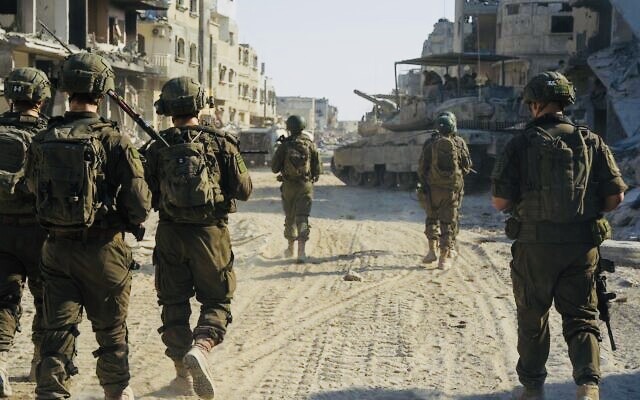
It is clear that Hamas has filled voids left by the departure of Israeli troops. Netanyahu has compounded the problem by refusing to turn over even parts of Gaza to the Palestinian Authority, which he has demeaned and marginalized. Much to his detriment, Netanyahu has not even attempted to establish an alternative governing body in Gaza.
The war in Gaza has certainly tarnished Israel’s image abroad. Initially, Israel won the public relations battle. But with almost 42,000 Palestinians having been killed so far and with Gaza lying in ruins, Israel has been repeatedly condemned.
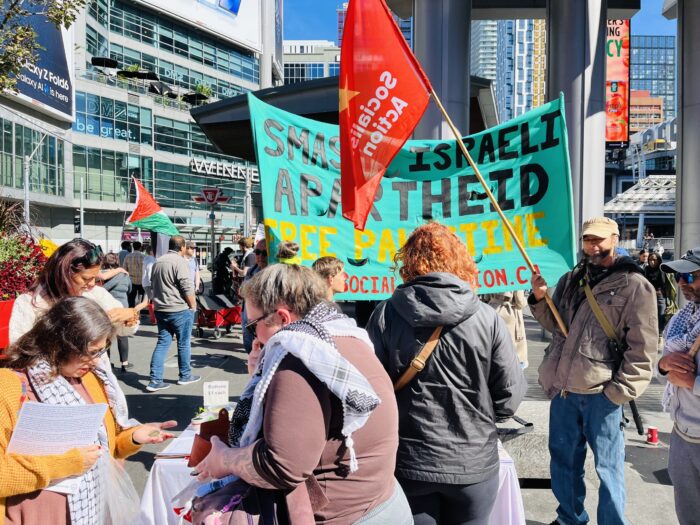
Israel has been accused of genocide, ethnic cleansing and perpetuating a humanitarian crisis. Amid these denunciations, Israel has been censured by the International Court of Justice and human rights organizations.
Hamas, which deliberately uses civilians as human shields in the hope of arousing global animosity against Israel, seems unconcerned by the fate of Gaza’s two million inhabitants.
The United States, Israel’s closest ally, has airlifted an array of weapons and munitions to Israel, even as progressive voices in President Joe Biden’s Democratic Party demand an arms embargo and an immediate truce. Biden, who has described himself as a Zionist, has been generally supportive of Israel, but he has withheld the shipment of 2,000-pound bombs and questioned Israel’s methods of warfare, prompting critics to assail his uneven policy.
As one such critic, Eli Lake, wrote, “Since October 7, we’ve seen a consistent story: The Biden administration views its support for Israel in purely defensive terms, and feels a duty to restrain Israel’s offensive. The American hug comes with handcuffs. And the handcuffs often come with stern admonitions. So Biden arms the Jewish state and professes his support for Israel’s right to defend itself, but there is always a “but.”
To no one’s surprise, October 7 triggered a wave of global antisemitism that has yet to subside. In the United States, Canada, France, Germany and Britain, antisemitic incidents have reached record levels. According to the Anti-Defamation League, there have been more than 10,000 antisemitic incidents in the U.S. in the past year.
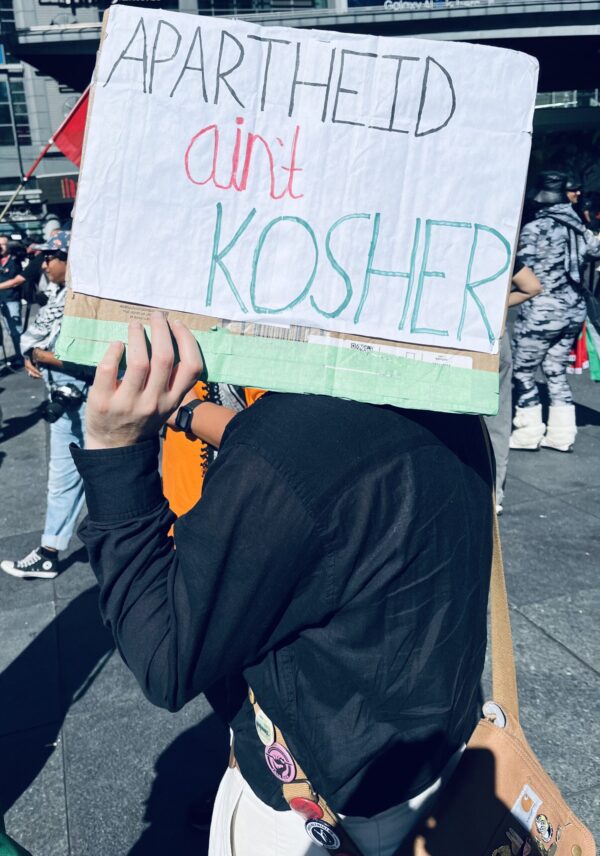
Judging by the emergence of pro-Palestinian encampments at universities earlier this year and the persistence of Palestinian rallies in cities near and far, Palestinians abroad and in the Middle East have been radicalized and emboldened by the events of October 7. In the United States, Canada and Europe, anti-Zionist Jews have rallied to Palestinian ranks.
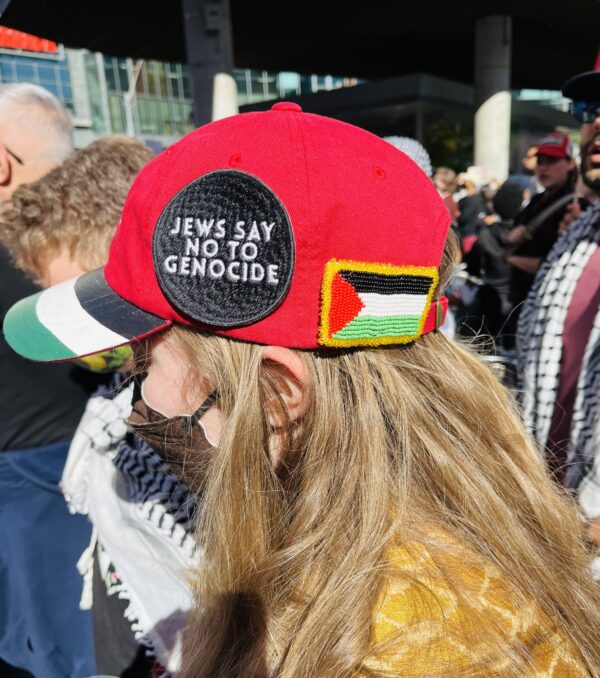
Looking back at the spiral of events since October 7, Israel’s 9/11, this much is certain. The Middle East has been irretrievably upended in the past year and, for better or worse, it will not be the same going forward.
